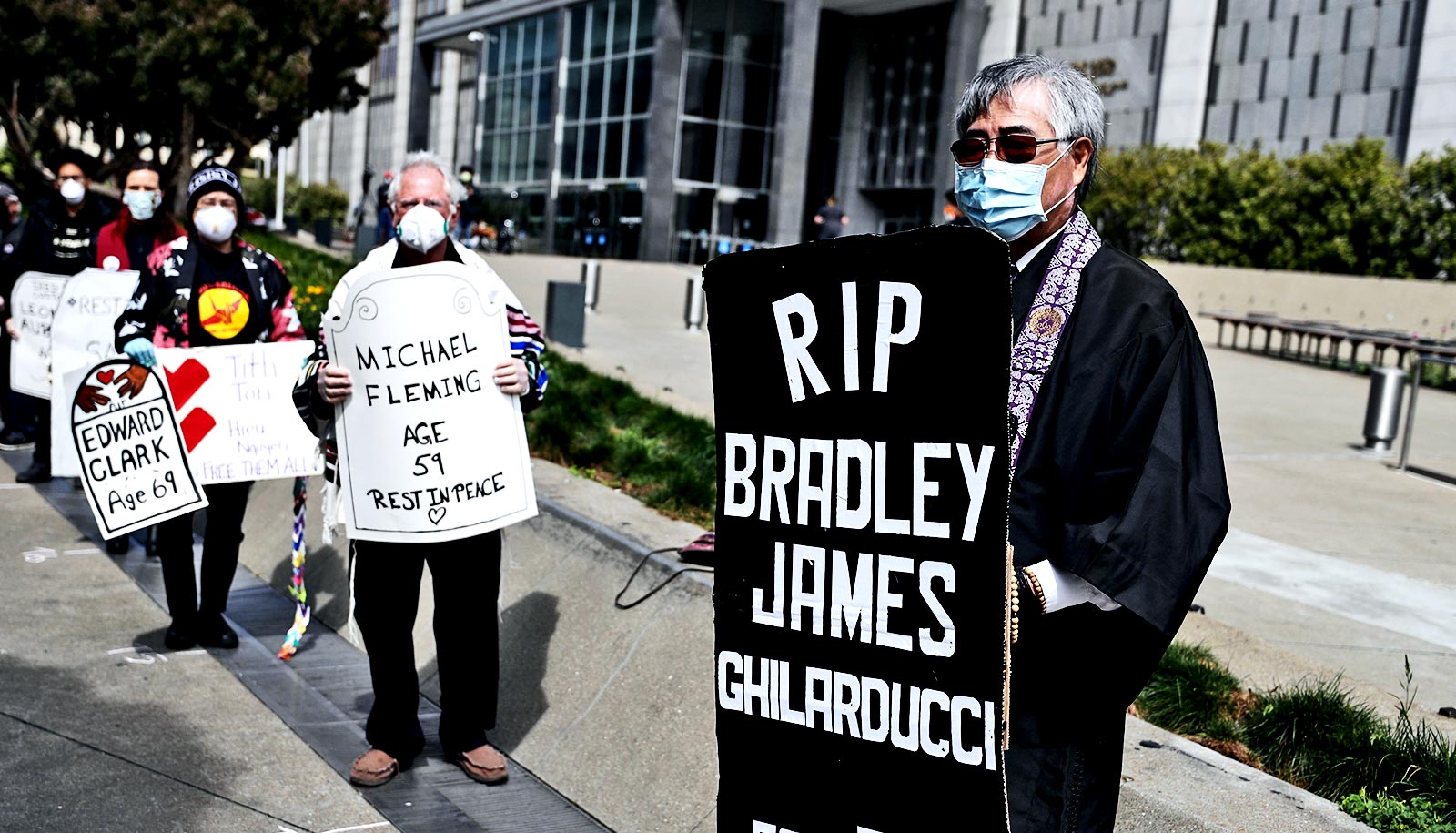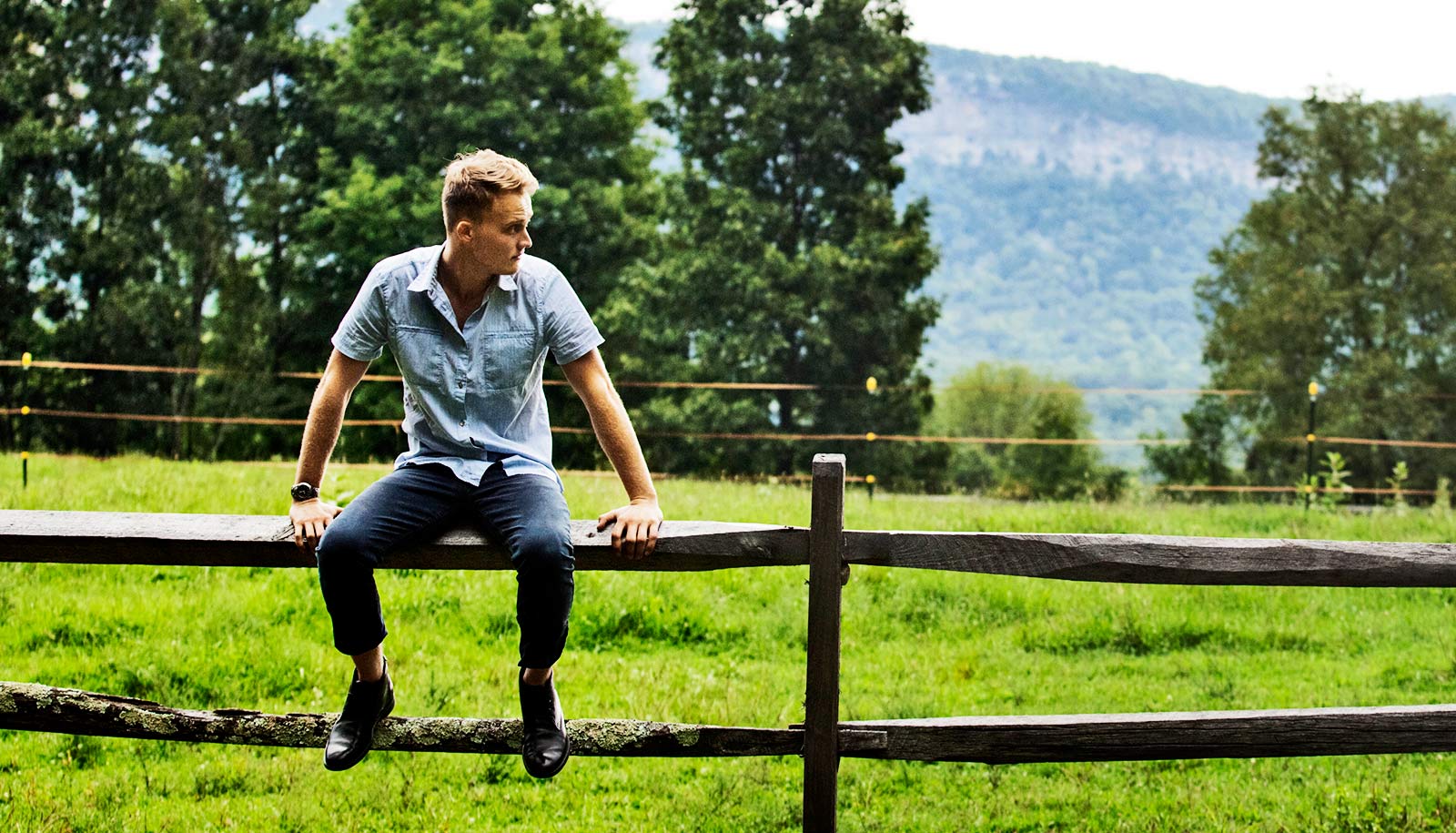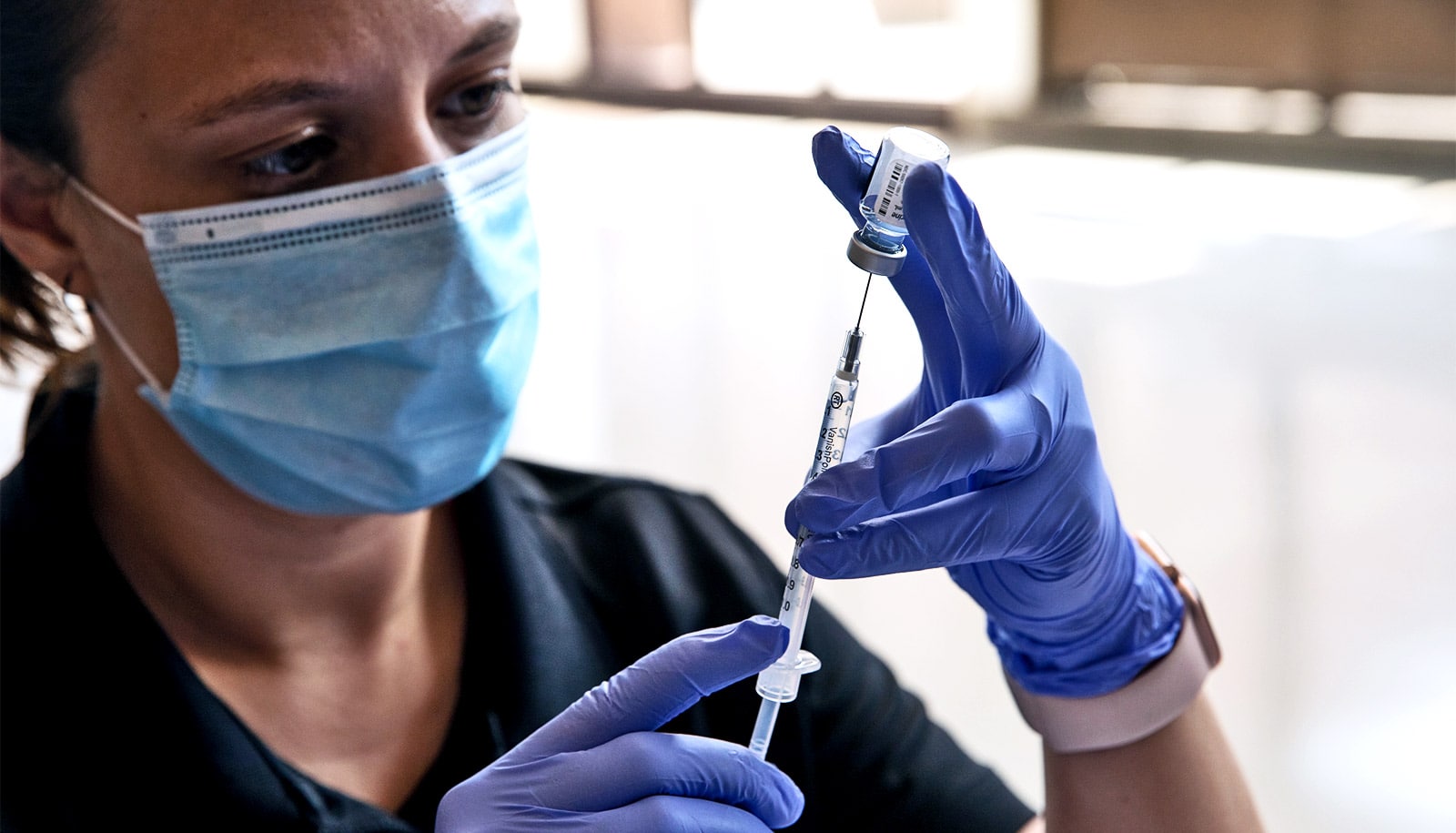
Faith leaders and activists hold signs and tombstone shapes as they hold a public memorial in front of the Phillip Burton Federal Building and US Courthouse to honor victims of COVID-19 that have died while incarcerated on May 12, 2020 in San Francisco, California. (Credit: Justin Sullivan/Getty Images )
Distrust drives COVID-19 vaccine refusal for people in prison
Fewer than half of inmates in jails and prisons surveyed say they would get a COVID-19 vaccine. Distrust in the system was most often cited as why.
Fewer than half of inmates in jails and prisons surveyed in a new study said they would accept a COVID-19 vaccine.
The majority surveyed either said they wanted to wait before getting the vaccine or would refuse one.
“This is a population already at risk for COVID-19 , and outbreaks among incarcerated people can worsen inequities in COVID-19 outcomes as well as contribute to spread in the surrounding community,” says lead author Marc Stern, affiliate assistant professor of health services in the University of Washington School of Public Health. “So culturally and health-literacy informed interventions are needed to help them feel more confident about getting vaccinated.”
For the study in the Centers for Disease Control and Prevention’s Morbidity and Mortality Weekly Report , researchers surveyed more than 5,000 inmates, men and women, in late 2020 from three prisons and 13 jails in Washington, California, Florida, and Texas.
Among those asked about their willingness to receive a vaccine, only 45% said they were willing. More than 45% said they would refuse, and nearly 10% said they might or weren’t sure they would receive it.
The most common reasons the participants gave for vaccine hesitancy fell into the response categories of waiting for more information or to see others take it first, and efficacy or safety concerns. The most common reason given for refusal was distrust of the health care system, correctional or government personnel, and institutions.
Researchers conducted the survey before vaccines became available, but at the time, Black and younger respondents were the least willing to get the vaccine. The researchers say a lower willingness to receive a vaccine among Black participants was “not unexpected given historical mistreatment and higher rates of distrust” of these institutions.
“People of color are subject to a ‘double whammy’—they are at higher risk of serious illness from COVID-19 and they are disproportionately incarcerated, living in facilities where they are more likely to become infected,” Stern says.
“I hope this study sheds light on the need to find ways of assuring high levels of vaccination of incarcerated individuals, not just for their own health, but for the health of the community.
“Vaccinating incarcerated individuals not only decreases the risk that officers and other staff will bring COVID-19 home to their family, friends and community, it is also an efficient way to vaccinate a large number of people who are otherwise hard for public health providers to reach once they return to their communities.”
Additional coauthors are from the CDC COVID-19 Response Team; the University of California, Los Angeles; the University of Washington; and the Washington State Department of Corrections.
Source: University of Washington
The post Distrust drives COVID-19 vaccine refusal for people in prison appeared first on Futurity .
Share this article:
This article uses material from the Futurity article, and is licenced under a CC BY-SA 4.0 International License. Images, videos and audio are available under their respective licenses.
Related Articles:
To fight vaccine hesitancy, identify ‘fence sitters’
Feb. 18, 2022 • futurityWhat are the ethics of getting a COVID-19 vaccine booster?
Sept. 10, 2021 • futurityLinks/images:
- https://www.futurity.org/covid-19-prisons-2537372/
- http://dx.doi.org/10.15585/mmwr.mm7013a3
- https://www.futurity.org/vaccine-hesitancy-covid-19-2533122-2/
- https://www.futurity.org/covid-19-prisons-viruses-2322002-2/
- https://www.washington.edu/news/2021/04/01/cdc-uw-study-finds-significant-vaccine-distrust-within-incarcerated-populations-increasing-risks/
- https://www.futurity.org/covid-19-vaccines-jails-prisons-2542852-2/
- https://www.futurity.org


